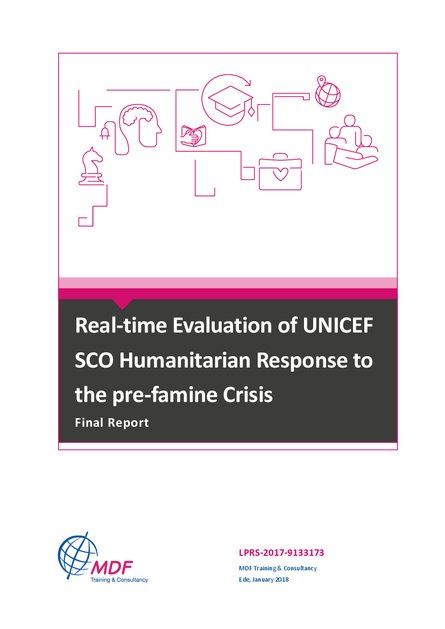
During 2016 and 2017, the humanitarian situation in Somalia continued to deteriorate because of the poor rains in successful Gu and Deyr seasons of 2016 and 2017, causing widespread food insecurity, deepening health, nutritional and water related issues and exacerbated by large-scale movement of people. In response, UNICEF declared an L-2 emergency in February and developed a 45-day scale up plan for implementation March-April 2017. The plan addressed operational systems, staffing and supplies management in a holistic manner; all building on work underway and already scaled up during 2016.
UNICEF greatly increased its response across sectors, supporting health and nutrition service delivery, accessibility of safe water and sanitation and reinvigorating protection services after a slight hiatus whilst continuing the support of children with sustained education interventions given fresh perspective due to the emergency processes. UNICEF commissioned a review of its pre-famine emergency response in Somalia with the aim to assess the extent to which the internal preparedness activities have fed into the current emergency response, and for taking stock of, and document learning around, the current emergency response for the period 1 March 2017 to 30 September 2017 highlighting the appropriateness, efficiency and effectiveness of the response.
